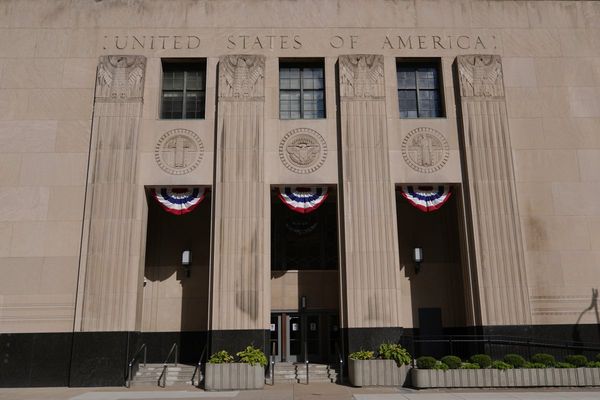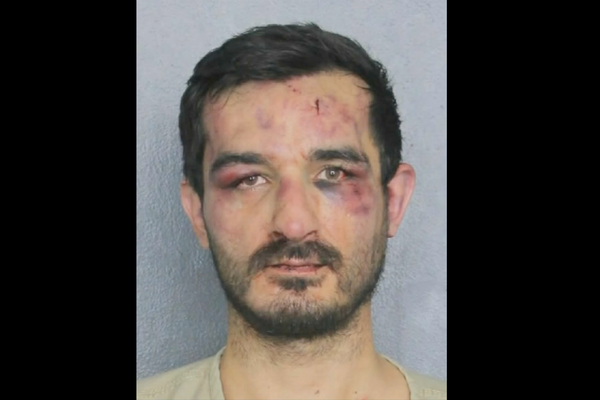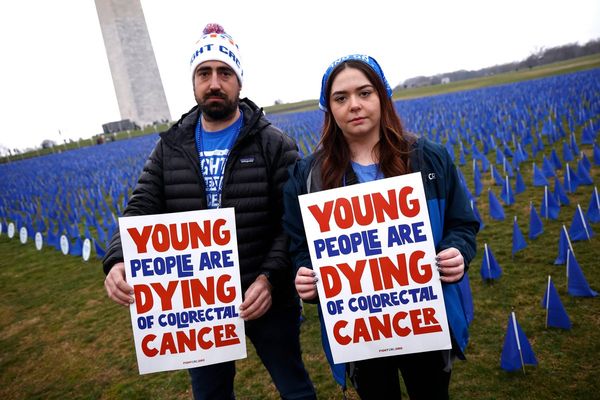ONEIDA INDIAN RESERVATION, Wis. _ The constantly changing weather matched the emotions of the summer day when young Jemima Metoxen, Sophia Coulon and Ophelia Powless came home, and the heartbreak of the past turned into a celebration of the present.
The morning began gray and somber during a funeral service for the girls at the Church of the Holy Apostles, the sky opening into a downpour of tears during their reburials. A burst of sunshine followed a community celebration, and a fiery orange sunset marked the close of a historic day.
Jemima, Sophia and Ophelia were among 456 Oneida students who forcibly made the 850-mile trip from the Wisconsin reservation to Carlisle, Pa., about 25 miles southwest of Harrisburg, around the turn of the 20th century to attend the Carlisle Indian Industrial School.
The school, which operated from 1879 to 1918, was the flagship of the U.S. government's movement to assimilate Native Americans into mainstream American culture via their children, some of whom were seized and sent to Carlisle without family consent. Books and blackboards, the government decided, were a cheaper solution to the country's "Indian problem" than bullets and battlefields had been.
The three teenage girls died while attending Carlisle: Jemima of spinal meningitis, Sophia of tuberculosis, and Ophelia of pneumonia. This past June, their bodies were moved from Carlisle's cemetery back to Wisconsin for reburial. All told, they had been away from home, collectively, just shy of 377 years.
The moment marked a milestone in a journey that had begun several weeks earlier, when a group of 11 from Oneida traveled to Carlisle to oversee the exhumation of the girls' bodies. Of the 11, only Tribal Councilman Kirby Metoxen had previously been to the Carlisle Indian Cemetery, where nearly 200 white gravestones of deceased children stand in perfect rows, like a formation of soldiers. He had made an unplanned stop there a few years before, while passing through central Pennsylvania.
"As I'm walking, I see an Oneida name" on a gravestone, recalled Metoxen, 59. "I see a Wheelock. I see a Powless. I see a Coulon. ... I see 'Melissa Metoxen.' ... I just couldn't catch my breath _ I just sobbed. These were children. They didn't ask to come here. How come nobody came and got them? As an elected official, if there was one thing I needed to accomplish, it was to bring them home," he said.
Their homecoming this summer coincided with the 47th annual Oneida Pow-wow. The sound of drums echoed over the rolling hillsides west of Green Bay, filling the landscape like a reawakened heartbeat. More than two dozen descendants of the three girls were in attendance, and the tribe recognized them with an honor song.
Later, young women spun and twirled in the fancy shawl dance, the fringes of their shawls flying in midair. One could easily imagine the celebratory dance being performed a century ago by Jemima, Sophia, and Ophelia but such joyous cultural expressions would have been forbidden at assimilation schools like Carlisle.
It seemed appropriate that two days later, along a road named Freedom and led by a priest named Patience, about 150 people gathered for a homecoming service for the girls. The church bells pealed 16 times for each of them _ an estimate of their ages at the time of their deaths.
The sound of hymns, sung in Oneida, drifted over the surrounding Wisconsin hillside as the Rev. Rodger Patience spoke of liberation and restoration.
"Bring the exiles home," he said, "and return them to the land where they belong." Ophelia was laid to rest in the cemetery of the historic church; Jemima and Sophia, in the nearby Oneida Sacred Burial Grounds.







